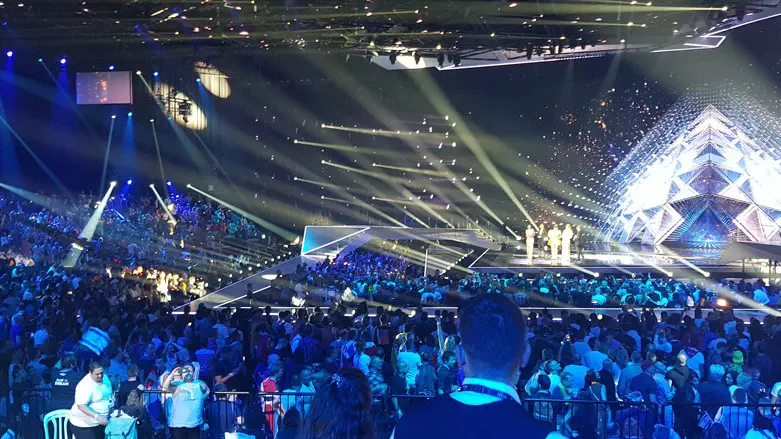
Just one day after controversially calling for Israel's suspension from the Eurovision Song Contest, Austria's 2025 winner, JJ, has reversed his stance.
The singer issued an apology on social media Thursday, clarifying his position.
"I’m sorry if my words were misunderstood. While I criticize the Israeli government, I condemn all forms of violence against civilians, whether Israeli or Palestinian. I will not comment further on this matter,” JJ wrote.
This statement marks a significant shift from his earlier remarks in an interview with the Spanish outlet El País on Tuesday. In that interview, JJ had stated, "I hope next year’s competition is held in Vienna—without Israel. But the ball is in the court of the European Broadcasting Union. We artists can only raise our voices on the matter. It’s very disappointing that Israel is still competing.”
Austria’s public broadcaster ORF, responsible for the country’s Eurovision participation, was quick to address JJ's initial comments.
“JJ’s statements reflect his personal opinion and are not connected to ORF,” the broadcaster stated. The statement further emphasized ORF’s focus on the artistic core of the competition. “For ORF, music and artistic performances are at the heart of Eurovision.”
JJ had also joined a chorus of critics questioning the Eurovision voting system following Israel's representative Yuval Raphael's surprising second-place finish, thanks to the public vote.
Raphael, who performed the song “New Day Will Rise” in Saturday’s grand final, came in second behind the Austrian representative, but she only received 60 points from the juries. The remaining 297 points came from the public, which overwhelmingly favored Israel’s entry over any other country.
“There needs to be a change in the voting system. There should be more transparency in the public voting process. This year, the whole thing felt very strange,” JJ commented.
The Austrian singer’s call for change aligns with broadcasters from Spain, Iceland, Belgium, Finland, and Ireland, who have either requested audits of their national televoting results or questioned the current methodology. A central point of contention is the allowance for viewers to cast up to 20 votes, which critics argue facilitates coordinated campaigns and introduces political influence, detracting from the contest's artistic intent.
Kan, the Israeli Public Broadcasting Corporation, responded to the speculation surrounding the voting process on Thursday morning.
"We are very proud of Yuval Raphael’s achievement and of the Israeli song, New Day Will Rise, at the Eurovision contest in Switzerland,” it said in a statement quoted by Ynet.
It continued, "The song earned a respectable second-place finish, with the Israeli delegation, the artist’s team, and the Israeli broadcasting corporation all adhering to the competition’s rules and conducting themselves respectfully and collegially toward the other delegations and artists. Any suggestion otherwise is unfounded, uncollegial, and simply not supported by the facts. The European audience loves Yuval and the Israeli song, and is focused solely on the music. The Israeli delegation warmly congratulates Austria on its first-place win.”
